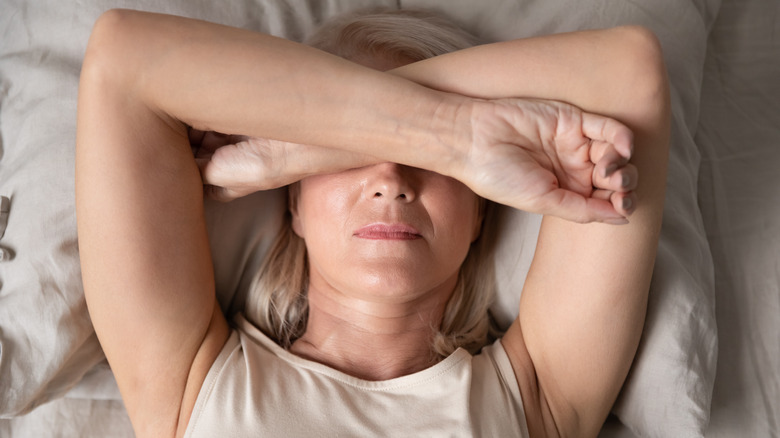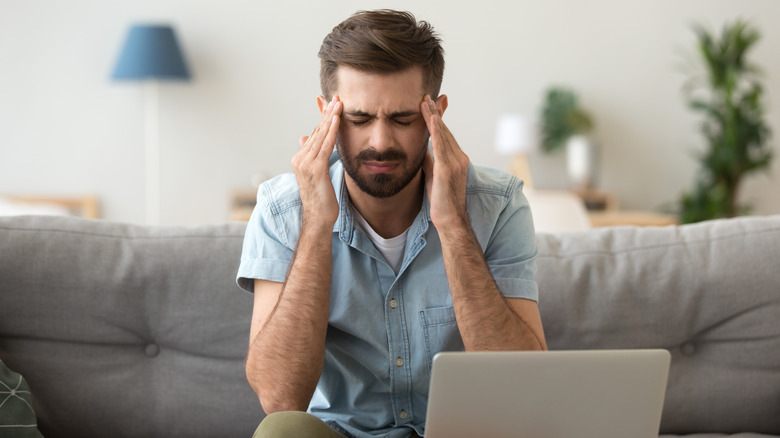Here's How Long Migraines Usually Last
A migraine is a neurological condition that can cause a severe, throbbing headache usually on one side of the head (via the Cleveland Clinic). Most migraines typically last from around four to 72 hours if untreated, according to the Mayo Clinic. Migraines can also cause, vomiting, and sensitivity to light and sound and for some, the pain is often so severe it interferes with daily activities. According to the Cleveland Clinic, about 12 percent of Americans get migraines at some point, rarely or several times a month and for most, they typically begin in childhood, adolescence, or early adulthood.
There are four stages of a migraine, though not everyone goes through them all. The first stage is called prodrome and begins one or two days before a migraine comes on. In this stage, you may experience mood changes, food cravings, constipation, neck stiffness, frequent yawning, and increased thirst and urination. The second stage is aura, which might occur before or during migraines. This involves visual phenomena like seeing shapes or flashes of light, vision loss, difficulty speaking, weakness or numbness in the face or side of body, and uncontrollable jerking. Each of these symptoms tend to come on gradually and last for about 20 to 60 minutes. During the third stage, called an attack, you will feel the full severity of migraine pain and accompanying symptoms. After a migraine attack, you might feel drained or confused in the final stage, which is called post-drome.
How to treat a migraine
There are a number of medications aimed at treating and preventing migraines. Over-the-counter pain relievers like aspirin or ibuprofen can be helpful in easing migraine pain. However, long-term use of these medications may lead to overuse, headaches, and possible ulcers in the gastrointestinal tract. Migraine relief medications that combine caffeine, acetaminophen, and aspirin may also help relieve pain, and there are prescription versions that can also provide relief. If over-the-counter drugs aren't working for you, talk to your doctor about other options that can prevent migraine attacks.
And if you do get a migraine, there are some other things that might help too. When you start to feel one coming on, you'll want to go into a dark, quiet room. Place a cool compress or ice pack on your forehead or back of the neck and try resting your eyes and taking a nap. Meditation and relaxation techniques may also help reduce pain and help you deal with stress. Stay hydrated and keep a headache diary of what triggers your symptoms. Talk to your doctor, who can help you find the most effective treatment plan.


